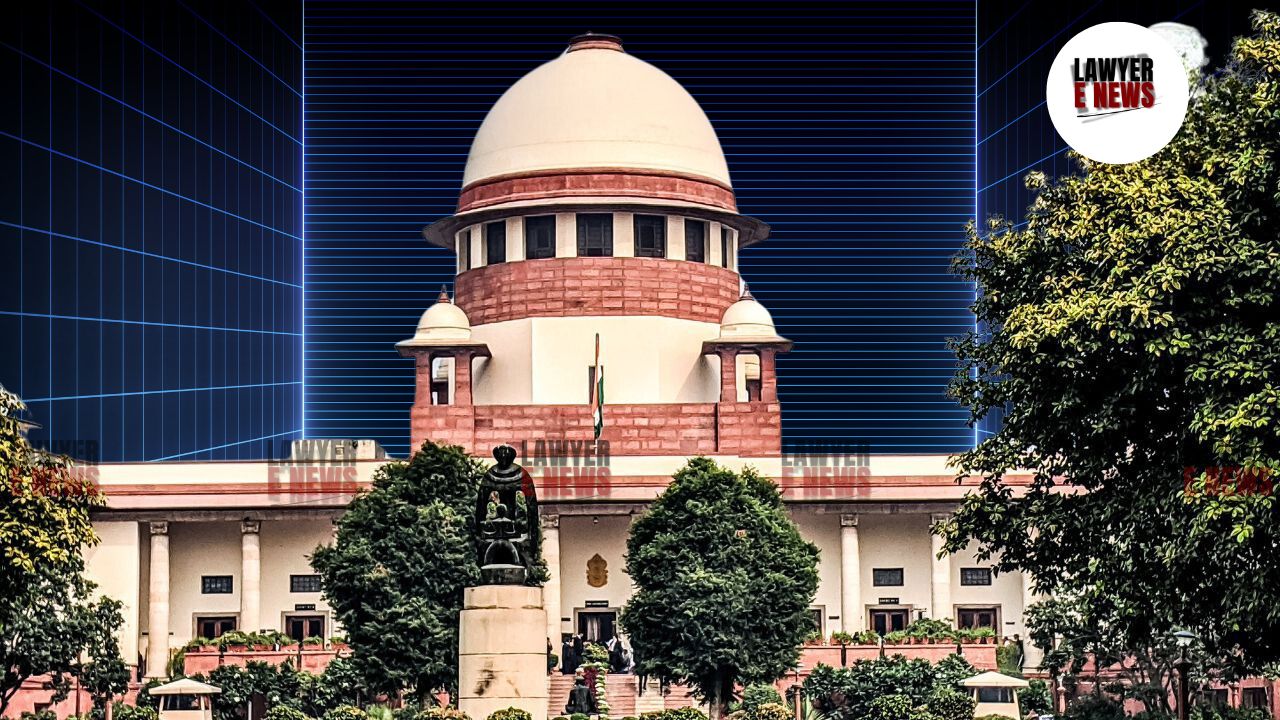-
by sayum
16 February 2026 7:15 AM



A Student’s Earning Potential Cannot Be Measured by Minimum Wages – SC Enhances Compensation from ₹23.9 Lakh to ₹34.56 Lakh. In a significant ruling Supreme Court of India held that while computing compensation in motor accident claims, the notional income of a student should not be equated to that of an unskilled worker. The case, Deepak Singh Alias Deepak Chauhan v. Mukesh Kumar & Ors., arose from a motor accident claim where the Punjab and Haryana High Court had determined compensation based on minimum wages. The Supreme Court set aside the High Court’s computation, enhancing the compensation from ₹23,90,719/- to ₹34,56,103/-, with 7.5% interest per annum.
Relying on Harpreet Singh v. Navjot Singh, the Court fixed the notional income of the injured student at ₹10,000 per month. The insurer was directed to pay the full amount, reaffirming the principle of joint and several liability in motor accident claims.
The case stemmed from a motor accident on October 12, 2012, when the appellant, Deepak Singh, was riding a motorcycle with his friend Bhagwan Singh. A Scorpio SUV, being driven rashly and negligently from the wrong side, collided with them. Bhagwan Singh died on the spot, while Deepak suffered grievous injuries.
An FIR (No. 213/2012) was registered under Sections 279, 337, 304-A, and 427 of the IPC. The appellant filed a claim petition on January 7, 2013, seeking compensation.
The Motor Accident Claims Tribunal (MACT), Gurgaon, awarded ₹7,09,303/- as compensation, holding the driver, owner, and insurer jointly and severally liable. The insurance company was directed to discharge the entire liability. The claimant appealed to the Punjab and Haryana High Court, which enhanced the compensation to ₹23,90,719/- on January 9, 2020, but based its calculations on minimum wages. The appellant then approached the Supreme Court, arguing that the compensation should reflect his actual earning potential.
"A Student’s Future Cannot Be Measured by an Unskilled Worker’s Wage" – SC Rejects Minimum Wage Calculation
One of the central questions before the Supreme Court was whether the High Court erred in using minimum wages as the basis for computing compensation for a student. The appellant’s counsel argued that as a young student, his potential future earnings could not be compared to those of an unskilled worker.
Agreeing with this argument, the Supreme Court relied on its previous ruling in Harpreet Singh v. Navjot Singh, where it had categorically stated:
"We do not think that the notional income of a student undergoing a degree course should be taken to be equivalent to the minimum wages admissible to an unskilled worker. Even if we do not go on the basis of campus placements, the High Court could have fixed the notional income at ₹10,000 per month."
Applying the same principle, the Supreme Court fixed the appellant’s notional income at ₹10,000 per month, leading to a recalculated compensation of ₹34,56,103/-.
"When an Insured Vehicle is Involved, the Insurer Must Bear the Full Liability" – SC Upholds Tribunal’s Decision
The Tribunal had held the driver, owner, and insurer jointly and severally liable, but directed the insurer to pay the entire compensation. The Supreme Court upheld this finding, reaffirming:
"When an insured vehicle is involved in a motor accident, the insurer is primarily liable to compensate the victim, subject to policy conditions."
Accordingly, the insurance company was directed to pay the full enhanced compensation.
The Supreme Court allowed the appeal and issued the following key directives:
The compensation was enhanced to ₹34,56,103/- from the High Court’s ₹23,90,719/-.
Interest at 7.5% per annum was granted, starting from the date of claim filing.
The insurer was directed to pay the full compensation amount.
642 days of delay in filing the appeal were excluded from interest computation.
This judgment reinforces the principle that compensation in motor accident claims must be fair and realistic, especially for young students and professionals. By rejecting the arbitrary application of minimum wages, the Supreme Court has ensured that accident victims receive just compensation based on their actual earning potential.
As the Court aptly noted in Harpreet Singh, "The loss of future income should be determined based on real potential, not arbitrary assumptions." This ruling will serve as a crucial precedent in motor accident claims, ensuring that students and young professionals are compensated fairly for their lost earning potential.
Date of Decision: February 10, 2025
